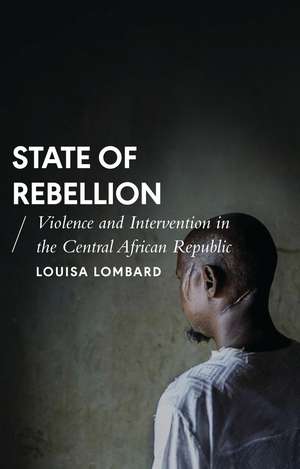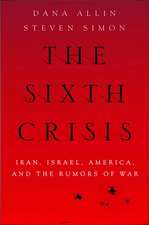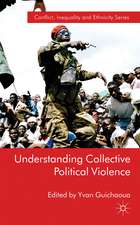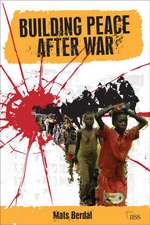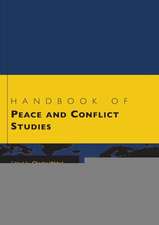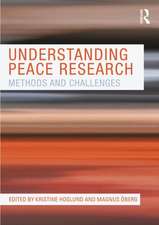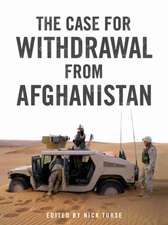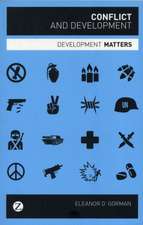State of Rebellion: Violence and Intervention in the Central African Republic: African Arguments
Autor Louisa Lombarden Limba Engleză Paperback – 14 dec 2016
| Toate formatele și edițiile | Preț | Express |
|---|---|---|
| Paperback (1) | 134.49 lei 6-8 săpt. | +25.81 lei 10-14 zile |
| Bloomsbury Publishing – 14 dec 2016 | 134.49 lei 6-8 săpt. | +25.81 lei 10-14 zile |
| Hardback (1) | 509.52 lei 6-8 săpt. | |
| ZED BOOKS – 14 dec 2016 | 509.52 lei 6-8 săpt. |
Din seria African Arguments
- 8%
 Preț: 100.40 lei
Preț: 100.40 lei - 38%
 Preț: 82.25 lei
Preț: 82.25 lei - 14%
 Preț: 137.63 lei
Preț: 137.63 lei - 14%
 Preț: 137.98 lei
Preț: 137.98 lei - 8%
 Preț: 119.51 lei
Preț: 119.51 lei - 38%
 Preț: 76.78 lei
Preț: 76.78 lei - 14%
 Preț: 136.46 lei
Preț: 136.46 lei - 14%
 Preț: 137.48 lei
Preț: 137.48 lei - 14%
 Preț: 137.32 lei
Preț: 137.32 lei - 14%
 Preț: 124.72 lei
Preț: 124.72 lei - 14%
 Preț: 119.51 lei
Preț: 119.51 lei - 14%
 Preț: 125.60 lei
Preț: 125.60 lei - 14%
 Preț: 138.35 lei
Preț: 138.35 lei - 15%
 Preț: 136.11 lei
Preț: 136.11 lei - 14%
 Preț: 137.32 lei
Preț: 137.32 lei - 8%
 Preț: 114.04 lei
Preț: 114.04 lei - 13%
 Preț: 113.15 lei
Preț: 113.15 lei - 8%
 Preț: 126.79 lei
Preț: 126.79 lei - 7%
 Preț: 129.00 lei
Preț: 129.00 lei - 13%
 Preț: 126.79 lei
Preț: 126.79 lei - 13%
 Preț: 80.67 lei
Preț: 80.67 lei - 8%
 Preț: 125.91 lei
Preț: 125.91 lei - 8%
 Preț: 119.70 lei
Preț: 119.70 lei - 8%
 Preț: 119.51 lei
Preț: 119.51 lei - 36%
 Preț: 414.71 lei
Preț: 414.71 lei - 7%
 Preț: 115.29 lei
Preț: 115.29 lei - 14%
 Preț: 143.66 lei
Preț: 143.66 lei - 22%
 Preț: 508.32 lei
Preț: 508.32 lei - 22%
 Preț: 510.75 lei
Preț: 510.75 lei - 22%
 Preț: 511.14 lei
Preț: 511.14 lei - 22%
 Preț: 505.84 lei
Preț: 505.84 lei - 22%
 Preț: 509.52 lei
Preț: 509.52 lei - 14%
 Preț: 112.53 lei
Preț: 112.53 lei - 22%
 Preț: 506.27 lei
Preț: 506.27 lei - 22%
 Preț: 506.74 lei
Preț: 506.74 lei - 14%
 Preț: 125.88 lei
Preț: 125.88 lei - 22%
 Preț: 507.48 lei
Preț: 507.48 lei
Preț: 134.49 lei
Preț vechi: 145.35 lei
-7% Nou
Puncte Express: 202
Preț estimativ în valută:
25.76€ • 26.54$ • 21.58£
25.76€ • 26.54$ • 21.58£
Carte tipărită la comandă
Livrare economică 22 februarie-08 martie
Livrare express 21-25 ianuarie pentru 35.80 lei
Preluare comenzi: 021 569.72.76
Specificații
ISBN-13: 9781783608843
ISBN-10: 1783608846
Pagini: 304
Ilustrații: Maps 1
Dimensiuni: 135 x 216 x 23 mm
Greutate: 0.36 kg
Editura: Bloomsbury Publishing
Colecția Zed Books
Seria African Arguments
Locul publicării:London, United Kingdom
ISBN-10: 1783608846
Pagini: 304
Ilustrații: Maps 1
Dimensiuni: 135 x 216 x 23 mm
Greutate: 0.36 kg
Editura: Bloomsbury Publishing
Colecția Zed Books
Seria African Arguments
Locul publicării:London, United Kingdom
Caracteristici
The violence in CAR has elicited widespread media, policy and academic interest and remains an ongoing issue
Notă biografică
Louisa Lombard is an assistant professor of anthropology at Yale University. Previously she held a Ciriacy-Wantrup postdoctoral fellowship in natural resource economics at the University of California at Berkeley. She has published widely on politics and conflict in Central Africa. In addition to her academic research, she has worked in the Central African Republic as a field consultant to several international organizations, including Human Rights Watch, Small Arms Survey, Refugees International, and the World Bank. Her previous books include Making Sense of the Central African Republic, co-edited with Tatiana Carayannis (Zed Books, 2015).
Cuprins
Introduction 1. Conflict and the State in the Peace-Kept World 2. The Nativeness of 'Foreign' Violence 3. Mobility as Power 4. Long and Short Histories of Rebellion 5. DDR and the Frustration of Desires for Entitlement 6. War as the Violence of the Pack 7. World Champion of Peacekeeping Conclusion
Recenzii
A must-read for comparativists and IR scholars interested in peacebuilding, the state, and African politics, as well as for policy makers involved with these issues in the CAR and beyond.'
In this stimulating and provocative book, Louisa Lombard proposes a new approach to peace-keeping, peace enforcement and humanitarian action that rests upon a politics of redistribution and acknowledgement of the social dignity of fighters lacking a state.
With a stunning combination of conceptual clarity and vivid ethnography, Louisa Lombard's book challenges conventional wisdom on the roots of violence in the CAR. A must-read for anyone wanting to engage with current debates on peace-building and state-building initiatives.
Brilliant ... Provides a magisterial reading of the role of violence in the making of the CAR. Authoritative, nuanced, and empirically rich, Lombard offers a new and compelling lens through which so-called state failure and post-conflict transitions can be understood.
This valuable, indeed important, study helps us make sense of a little-known but strategically important African country. Those who wish to know Africa today need to know this book.
If you want to understand why the CAR seems a perpetual work in regress, then Louisa Lombard's book is a must read. Her new perspectives illuminate a neglected recess of globalization.
In this stimulating and provocative book, Louisa Lombard proposes a new approach to peace-keeping, peace enforcement and humanitarian action that rests upon a politics of redistribution and acknowledgement of the social dignity of fighters lacking a state.
With a stunning combination of conceptual clarity and vivid ethnography, Louisa Lombard's book challenges conventional wisdom on the roots of violence in the CAR. A must-read for anyone wanting to engage with current debates on peace-building and state-building initiatives.
Brilliant ... Provides a magisterial reading of the role of violence in the making of the CAR. Authoritative, nuanced, and empirically rich, Lombard offers a new and compelling lens through which so-called state failure and post-conflict transitions can be understood.
This valuable, indeed important, study helps us make sense of a little-known but strategically important African country. Those who wish to know Africa today need to know this book.
If you want to understand why the CAR seems a perpetual work in regress, then Louisa Lombard's book is a must read. Her new perspectives illuminate a neglected recess of globalization.
